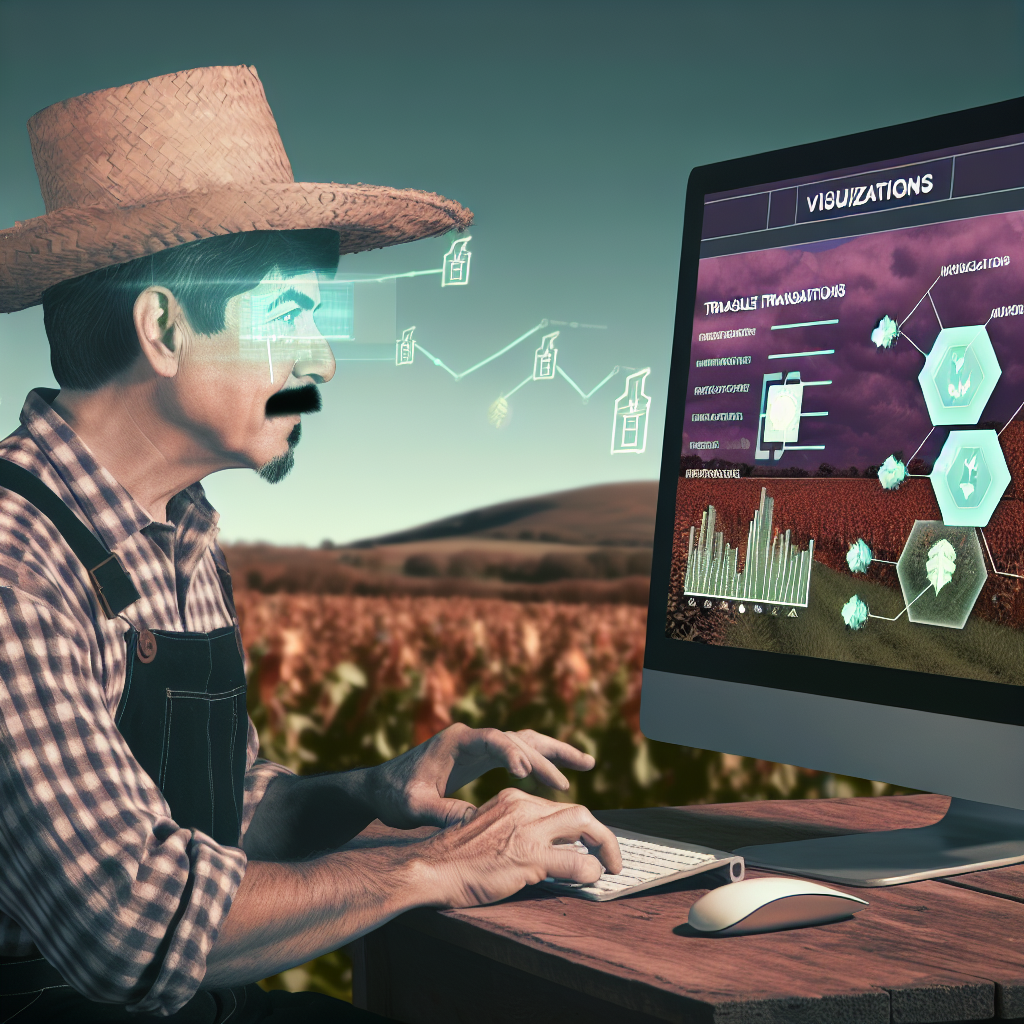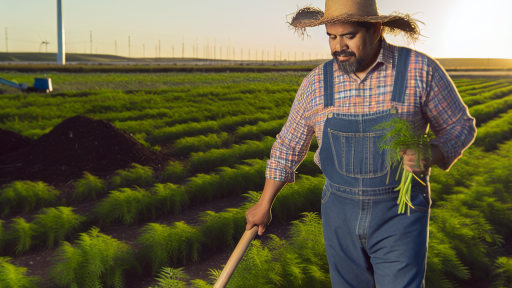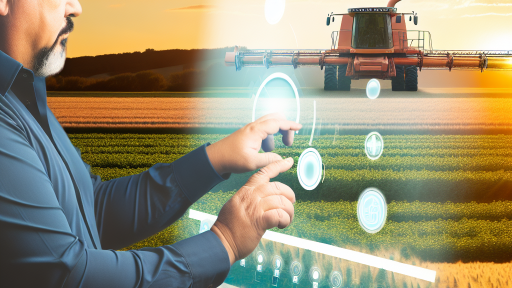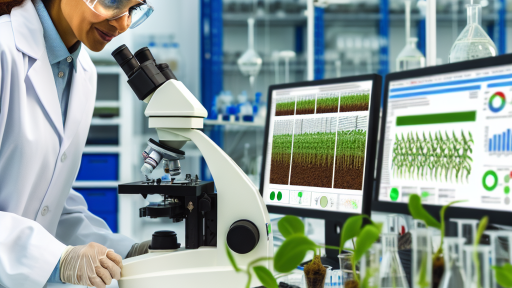Introduction to Supply Chain Fraud in Agriculture
Supply chain fraud poses significant challenges in agriculture today.
This fraud can jeopardize the trust between farmers and consumers.
Unethical practices emerge when intermediaries take advantage of weak links.
For instance, mislabeling products increases the risk of fraud.
Additionally, fraudulent practices lead to economic losses for honest farmers.
Farmers often face pressure to comply with dishonest demands.
This is particularly true in markets where prices fluctuate rapidly.
Consequently, the integrity of agricultural products is compromised.
Furthermore, consumers become wary of product authenticity.
Using blockchain technology, farmers can combat this fraud effectively.
Blockchain enhances transparency within the entire supply chain.
It allows farmers to track products from farm to table.
Additionally, blockchain creates a secure ledger for each transaction.
This technology fosters trust among all supply chain participants.
Farmers can demonstrate the authenticity of their products.
Transform Your Agribusiness
Unlock your farm's potential with expert advice tailored to your needs. Get actionable steps that drive real results.
Get StartedMoreover, consumers can verify the source of their food easily.
Together, these measures can significantly reduce supply chain fraud.
Consequently, the agriculture industry can thrive in a more transparent environment.
The Role of Blockchain Technology in Enhancing Transparency
Introduction to Blockchain Technology
Blockchain technology creates a decentralized ledger for transactions.
It offers a transparent and secure method to record data.
Ultimately, this technology enhances the accountability of all parties involved.
Benefits of Blockchain for Farmers
Farmers benefit greatly from adopting blockchain technology.
First, it improves traceability throughout the supply chain.
This traceability helps verify the origin of products.
As a result, consumers gain confidence in the food they purchase.
Enhancing Data Transparency
Blockchain ensures that all data is visible to authorized parties.
This visibility prevents unauthorized alterations to records.
Furthermore, it allows farmers to easily access critical information.
They can track their products from farm to consumer seamlessly.
Fraud Reduction Through Immutable Records
Immutable records are crucial in combating supply chain fraud.
Once data is recorded on a blockchain, it cannot be changed.
Therefore, fraudulent activities become easier to detect and prevent.
This aspect safeguards farmers against potential losses due to deception.
Real-World Applications
Several companies are already utilizing blockchain in agriculture.
For instance, AgriDigital offers a platform to track grain transactions.
Moreover, FoodTrace enhances food supply transparency and safety.
Farmers using these platforms can boost their market access and trust.
The Future of Blockchain in Agriculture
The integration of blockchain in agriculture is still in its early stages.
However, its potential for vast improvements is undeniable.
Showcase Your Farming Business
Publish your professional farming services profile on our blog for a one-time fee of $200 and reach a dedicated audience of farmers and agribusiness owners.
Publish Your ProfileAs technology evolves, more farmers will adopt these solutions.
Ultimately, this shift will help create a more transparent and reliable supply chain.
How Blockchain Improves Traceability in Farming Supply Chains
Enhancing Transparency
Blockchain technology brings unprecedented transparency to farming supply chains.
Every transaction creates a permanent record on the blockchain.
This record ensures all stakeholders can access verified information.
Farmers can track the journey of their products from farm to table.
As a result, consumers gain confidence in food safety and sourcing.
Streamlining Data Sharing
Blockchain allows for seamless information sharing among participants.
Producers, distributors, and retailers can access real-time data effortlessly.
This quick access helps in making informed decisions rapidly.
Furthermore, it reduces the chances of misinformation and errors.
Improving Accountability
With blockchain, each participant in the supply chain becomes accountable.
Everyone’s actions are recorded, making it hard to hide fraudulent activities.
Farmers can prove the authenticity of their produce through blockchain.
This heightened accountability deters dishonest practices.
Reducing Losses and Fraud
Traceability significantly minimizes the risk of fraud in agriculture.
Blockchain’s immutable records make it difficult for fraudulent actors to manipulate data.
This technology helps farmers recover losses caused by supply chain discrepancies.
By securing transactions, farmers can trust their partners more fully.
Facilitating Compliance with Regulations
Many regulations require documentation of sourcing and safety measures.
Blockchain can simplify the process of compliance for farmers.
By having all data easily accessible, regulatory audits become easier.
This adaptation enhances overall food safety in the supply chain.
You Might Also Like: Drone Applications For Pest And Disease Control
Case Studies of Successful Blockchain Implementations in Agriculture
Overview of Blockchain in Agriculture
Blockchain technology offers transparency and security in agricultural supply chains.
This innovation helps farmers track their produce from farm to table.
Moreover, it can significantly reduce fraud and enhance trust among stakeholders.
Successful Implementation Example: AgriDigital
AgriDigital is an Australian company revolutionizing grain supply chains.
They utilize blockchain to facilitate transactions between farmers and buyers.
This platform ensures payments are made promptly upon delivery.
As a result, farmers feel more secure in their transactions.
Moreover, buyers appreciate the traceability it provides.
Impact on Farmers
The implementation of AgriDigital has transformed farmers’ experiences.
Farmers reported faster payment processes after utilizing the platform.
Additionally, they gained access to real-time market information.
This data enables them to make informed decisions regarding sales.
Case Study: IBM Food Trust Program
IBM’s Food Trust uses blockchain to improve food safety and traceability.
Several major retailers and producers have adopted this program.
Walmart and Nestlé are notable participants in this initiative.
This collaboration allows for efficient tracking of food products.
Showcase Your Farming Business
Publish your professional farming services profile on our blog for a one-time fee of $200 and reach a dedicated audience of farmers and agribusiness owners.
Publish Your ProfileConsequently, the risk of foodborne illnesses diminishes.
Benefits of Adoption
Farmers benefit from improved visibility throughout the supply chain.
Furthermore, they can verify product authenticity and quality.
Adopting blockchain enhances customer trust in agricultural products.
In turn, these benefits promote larger market opportunities for farmers.
Implications of Blockchain in Agriculture
These case studies illustrate the potential of blockchain technology.
They show significant improvements in supply chain transparency and efficiency.
Ultimately, blockchain can help farmers mitigate fraud effectively.
As such, more agricultural stakeholders should consider its adoption.
Find Out More: Integrating Agri-Fintech Technologies For Smarter Farm Management
Challenges Faced by Farmers in Adopting Blockchain Solutions
Understanding the Technology
Many farmers struggle to understand blockchain technology.
This technology can appear complex, creating confusion.
Moreover, educational resources on blockchain specific to agriculture are limited.
Cost of Implementation
Implementing blockchain solutions requires significant financial investment.
Farmers often lack the necessary capital to adopt new technologies.
Additionally, ongoing maintenance costs can add financial strain.
Integration with Existing Systems
Integrating blockchain with current supply chain systems poses challenges.
Existing infrastructures may not easily accommodate new technology.
Farmers must navigate software compatibility issues during integration.
Access to Reliable Internet
Many rural areas still lack reliable internet access.
This hinders farmers from utilizing blockchain solutions effectively.
Intermittent connectivity disrupts data sharing and transaction processes.
Regulatory and Compliance Issues
Navigating regulatory frameworks can be daunting for farmers.
Blockchain solutions may fall under various regulatory bodies.
Farmers need to ensure compliance with local and national laws.
Trust and Adoption Rates
Building trust in new technologies takes time and education.
Many farmers are hesitant to adopt blockchain due to skepticism.
Effective communication about the benefits is essential for increasing adoption rates.
See Related Content: How Genetically Modified Crops Improve Farm Yields

The Cost-Benefit Analysis of Blockchain for Farmers
Introduction to Blockchain Benefits
Blockchain technology offers farmers enhanced transparency.
It helps streamline their operations and transactions.
Moreover, farmers can track their supply chains effectively.
Cost Considerations
Implementing blockchain requires initial investments.
Farmers must purchase software and training for their teams.
Additionally, there may be ongoing maintenance costs.
However, these costs can be offset by savings in the long term.
Efficiency and Transparency
Blockchain increases efficiency in various farming processes.
It reduces the time taken for transactions and record-keeping.
Farmers gain real-time insights into their supply chains.
Transparency helps in building trust with consumers.
Showcase Your Farming Business
Publish your professional farming services profile on our blog for a one-time fee of $200 and reach a dedicated audience of farmers and agribusiness owners.
Publish Your ProfileMitigating Fraud and Errors
Farmers face significant risks from supply chain fraud.
Blockchain technology offers a secure way to combat these issues.
By using a decentralized ledger, fraud becomes easily detectable.
This leads to lower losses for farmers and higher profit margins.
Consumer Trust and Market Values
With enhanced transparency, consumer trust increases significantly.
Farmers can showcase the quality and authenticity of their products.
Furthermore, trustworthy practices can lead to higher market values.
Consumers are more likely to pay a premium for verified produce.
Future Considerations
As technology advances, more farmers may adopt blockchain.
Future integration with IoT can further streamline operations.
Farmers will need to adapt to changing market dynamics.
Understanding blockchain’s value is essential.
It represents a promising avenue for reducing supply chain fraud.
You Might Also Like: Drone Technology Revolutionizing Sustainable Farming Practices
Policy Recommendations for Encouraging Blockchain Adoption in Farming
Promoting Awareness and Education
Enhancing awareness about blockchain technology is essential.
Farmers need access to clear, practical information.
Workshops and seminars can help achieve this goal.
Partnerships with educational institutions will increase outreach.
Collaboration with agricultural organizations will also spread knowledge.
Providing Financial Incentives
Government grants can motivate farmers to adopt blockchain solutions.
Subsidizing implementation costs can lower the financial barrier.
Tax incentives may also encourage experimentation with new technologies.
Matching funds programs can spur private investment in blockchain.
Facilitating Access to Technology
Creating a user-friendly platform will ease blockchain integration.
Farmers need tools that integrate with their existing systems.
Access to affordable technology will empower smaller farms.
Partnerships with tech companies can enhance access to necessary tools.
Establishing Standards and Regulations
Developing clear standards will ensure interoperability among systems.
Regulatory frameworks can provide a safe environment for innovation.
Guidelines should focus on data security and privacy compliance.
Establishing best practices will build trust in blockchain solutions.
Encouraging Collaborative Networks
Building networks among farmers can facilitate knowledge-sharing.
Cooperatives can leverage collective bargaining power for technology costs.
Collaborative platforms can enhance communication and transparency.
Networking events can foster relationships among stakeholders.
Engaging with Policymakers
Farmers should actively engage with local and national policymakers.
Advocating for favorable policies will promote blockchain use.
Creating a coalition of stakeholders can amplify their voice.
Joining industry associations can improve influence in policy discussions.
Future Trends: The Evolution of Supply Chain Management with Blockchain
Enhancing Transparency and Traceability
Blockchain technology significantly enhances transparency in the supply chain.
Showcase Your Farming Business
Publish your professional farming services profile on our blog for a one-time fee of $200 and reach a dedicated audience of farmers and agribusiness owners.
Publish Your ProfileFarmers can track their products from farm to table seamlessly.
This traceability helps in building consumer trust and loyalty.
Moreover, it empowers farmers to identify the origin of any issues quickly.
Reducing Fraud and Counterfeiting
Blockchain minimizes fraud in the agricultural supply chain.
Each transaction is securely recorded and immutable, preventing tampering.
This security helps in protecting the livelihoods of honest farmers.
Counterfeit products can be more easily identified and eliminated.
Streamlining Transactions and Payments
Smart contracts facilitate faster transactions in the supply chain.
Payments are made instantly once conditions are met, reducing delays.
This efficiency benefits farmers by improving cash flow management.
Additionally, it lowers transaction costs and administrative burdens.
Boosting Collaboration among Stakeholders
Blockchain fosters collaboration among various supply chain stakeholders.
Farmers, distributors, retailers, and consumers can share information readily.
This collective effort enhances problem-solving and decision-making processes.
Ultimately, it leads to a more resilient supply chain system.
Leveraging Data for Improved Insights
Blockchain provides valuable data that farmers can analyze.
This data assists in understanding market trends and consumer preferences.
Farmers can adjust their practices based on these insights effectively.
Consequently, they can improve yield and profitability over time.
Environmental Sustainability and Efficiency
Utilizing blockchain promotes sustainable practices in agriculture.
It can track resource usage and waste production accurately.
Farmers can make more informed decisions to reduce environmental impact.
Furthermore, this contributes to the overall sustainability of the industry.
Additional Resources
Blockchain in Agriculture and Food Supply Chain Market …
Blockchain Technology for Agriculture: Applications and … – Frontiers




